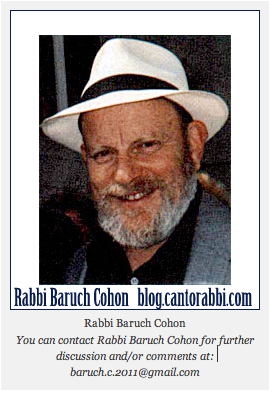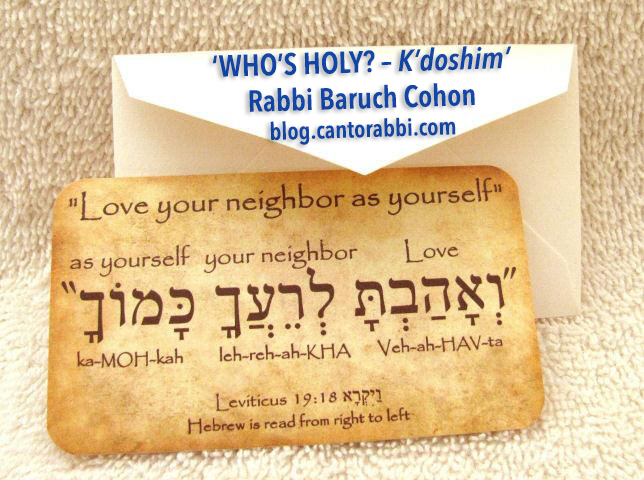
WHO IS HOLY? — K’doshim, Lev. 18-20 by Rabbi Baruch Cohon
This Torah reading bears a close relationship to the previous one. On non-leap years they are read together in synagogue services. Their relationship involves the effects of wrong conduct, actions to be avoided. Prohibitions and the warnings of punishment are featured in the previous chapter.
Warnings and prohibitions are not enough. This section, called K’doshim – “Holy ones” – sets out penalties for violating these laws. We don’t find any prison time mentioned here. No fines, either. Minor infractions call for burnt offerings. Major violations incur execution or ostracism. Torah law may not be politically correct. Too bad. But what does all this strict punishment have to do with holiness?
In its very special way, the Torah defines Holiness before even going into detail about punishment. To be holy does not mean setting yourself apart from human society and its temptations. No ivory tower. Don’t try to be what’s called a “holy Joe.”
Just the opposite, in fact. Holiness requires that we deal justly and respectfully with each other. Honor your parents. Keep the Sabbath. Pay a day-worker before nightfall. Do not deceive your neighbor or lie, and never swear falsely because that is blasphemy. Do not curse the deaf, or place a stumbling block in the path of the blind. The stumbling block law in Jewish tradition is interpreted morally as well as physically. Talmudic leaders defined temptation to do wrong as “placing a stumbling block.”
Legal challenges are discussed too. Judges may well note the ruling: “Do not favor the person of the poor and do not glorify the person of the mighty. Judge your neighbor with justice.” Principles like those apply to non-court situations also, as we will read about relations with someone whose actions you disapprove: “Do not hate your brother in your heart. Rebuke him, and do not bear sin because of him.”
Perhaps the most down-to-earth expression of holiness is this: “Do not take vengeance or bear a grudge against one of your people.” The classic examples of this disapproved conduct goes this way: Vengeance is when you ask to borrow your neighbor’s axe and he refuses; then next week he asks to borrow your ladder and you refuse, saying “You wouldn’t lend to me, so I’m not lending to you.” A grudge is when he refuses to lend you his axe, but when he comes to borrow your ladder you say: “Sure, here it is. You see? I’m not like you!”
Most famous of all the holiness teachings is the line “Love your neighbor as yourself.” To me, this means that first you need some self-love. If I have no respect for myself, what value is my love for my neighbor? As Hillel said in Pirkey Avot, “If I am not for myself, who will be for me?” Of course, the process goes both ways. By building a habit of treating other people right, we can also take some pride in our own lives.
Who is holy? Potentially, you and I.


